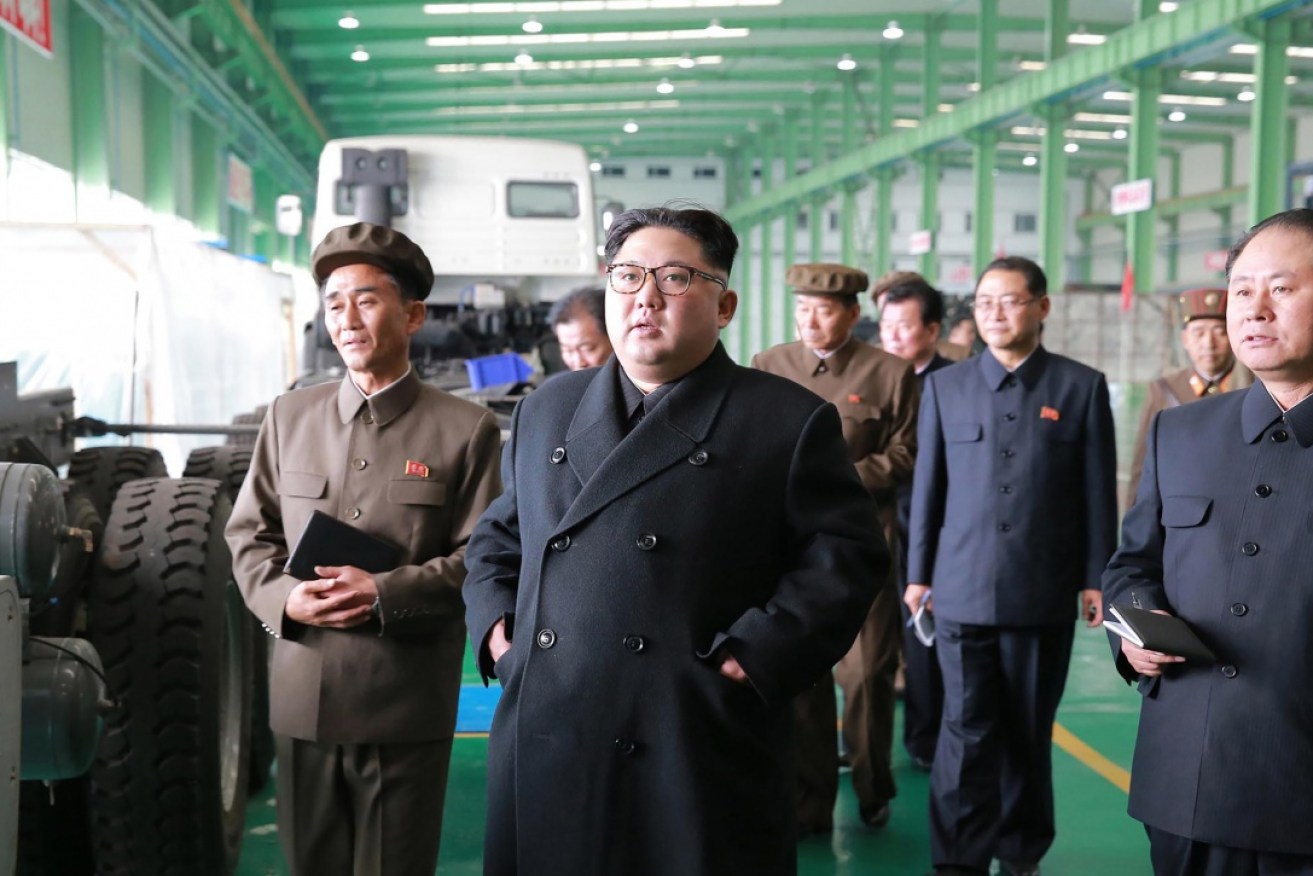North Korean nuclear site has collapsed, may be leaking radiation

The mountain above North Korea's nuclear test site has collapsed under the stress of the explosions. Photo: Getty
A study by Chinese geologists shows the mountain above North Korea’s main nuclear test site has collapsed under the stress of the explosions, rendering it unsafe for further testing and necessitating monitoring for any leaking radiation.
The findings by the scientists at the University of Science and Technology of China may shed new light on North Korean President Kim Jong Un’s announcement that his country was ceasing its testing program.
Nuclear explosions release enormous amounts of heat and energy, and the North’s largest test in September was believed early on to have rendered the site in northeastern North Korea unstable.
The data in the latest Chinese study was collected following the most powerful of the North’s six nuclear device tests on September 3 that is believed to have triggered four earthquakes over the following weeks.
The yield of the bomb was estimated at more than 100 kilotons of TNT, at least 10 times stronger than anything the North had tested previously. The bomb the United States dropped on Hiroshima in 1945 had a yield of about 15 kilotons.
The University of Science and Technology of China paper said the first of those earthquakes that occurred eight-and-a-half minutes after the explosion was “an onsite collapse toward the nuclear test centre,” while those that followed were an “earthquake swarm” in similar locations.
“In view of the research finding that the North Korea nuclear test site at Mantapsan has collapsed, it is necessary to continue to monitor any leakage of radioactive materials that may have been caused by the collapse,” the authors said in a summary dated Monday and viewed Wednesday on the university’s website.
The study is peer-reviewed and has been accepted for publication by the journal Geophysical Research Letters.
The Chinese study makes sense and is based on well understood research, said Rowena Lohman, a seismologist at Cornell University who wasn’t part of the work.
She said she believes there’s an international effort that monitors these tests for radiation.
North Korea’s nuclear tests are of special concern to Beijing, since the test site near the town of Kilju is less than 100km from the border with China.
North Korean nuclear tests have caused seismic events in Chinese border towns and cities, forcing evacuations of schools and offices, sparking fears of wind-born radiation and leading to a backlash among some Chinese against their country’s unpredictable traditional ally.
Chinese authorities have said they’ve detected no radiation risk from the tests.
On Saturday, North Korea announced it will close its nuclear testing facility and suspend nuclear and intercontinental ballistic missile tests – a move that comes ahead of a planned summit between US President Donald Trump and Kim.
-AAP








